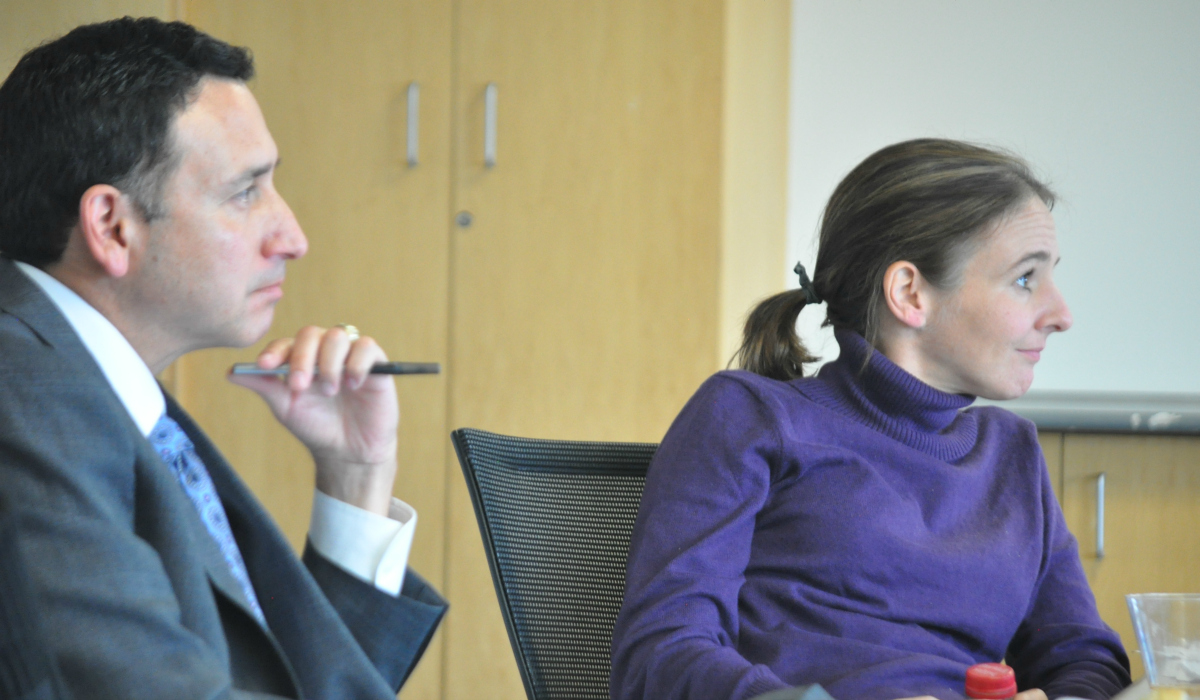

The Catholic University of America’s Institute for Human Ecology (IHE), in collaboration with the United States Naval Academy (USNA), held a workshop this week at the University on applied ethics.
The collaboration was prompted last spring by an invitation from USNA to Angela Knobel, associate professor of philosophy and IHE fellow, to participate in a review of the academy’s Leadership Education and Development (LEAD) Division curriculum, especially that portion of it devoted to moral character.
“One upshot of those discussions was the sense that all of our students — midshipmen and Catholic University undergraduates alike — would benefit from the opportunity to take ethics courses that are ‘applied’ in the good sense: courses that offer students a chance to engage in a detailed philosophical study of topics like honor, integrity, and courage,” said Joseph Capizzi, executive director of IHE and professor of moral theology.
Both the associate director of the academy’s LEAD Division and the University’s School of Philosophy decided to develop a pilot version of such a course, Capizzi noted.
In an effort to promote this initiative and to lend its expertise to the project, IHE hosted the workshop, where participants discussed the structure and content of the kind of applied ethics course that the University and USNA envisioned. Representatives of the nation’s other service academies also participated.
Participants at the workshop, held Nov. 13 and 14, included Knobel, Capizzi, members of the philosophy faculty from the United States Air Force Academy, members of the USNA philosophy and psychology faculties, and a representative of U.S. Army North, which is based in Houston.
Prior to the workshop, each participant independently developed an applied ethics syllabus and list of reading.
“This advance preparation allowed us to have a very fruitful discussion about our goals in teaching courses we envisioned and also about whether the selected course materials advanced those goals,” noted Capizzi. “Catholic University and the Institute for Human Ecology look forward to assisting the service academies through future collaborations.”